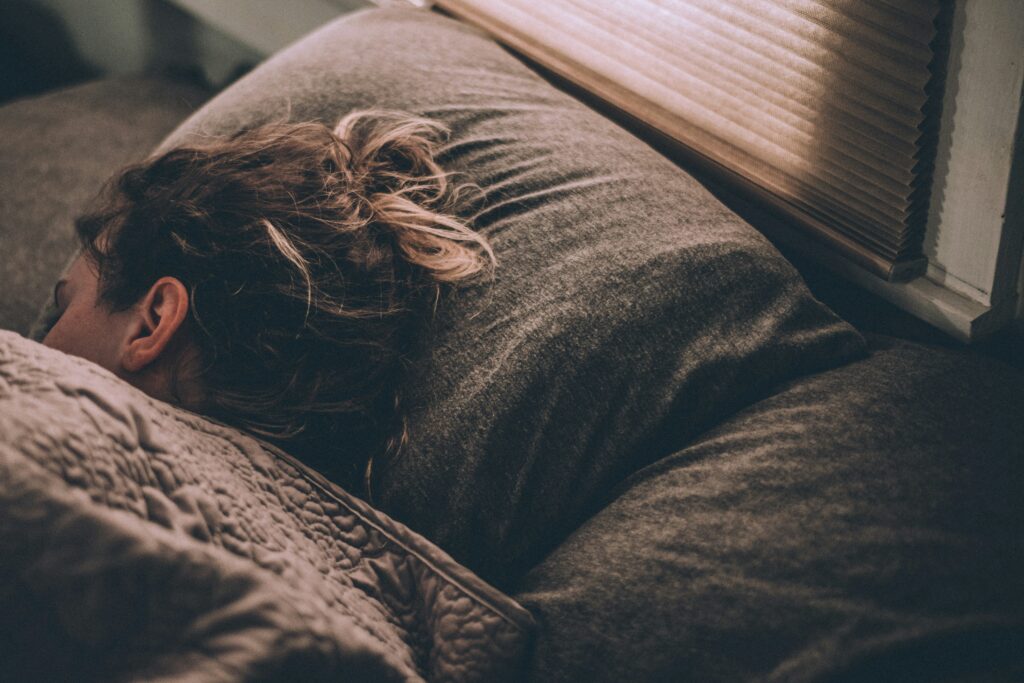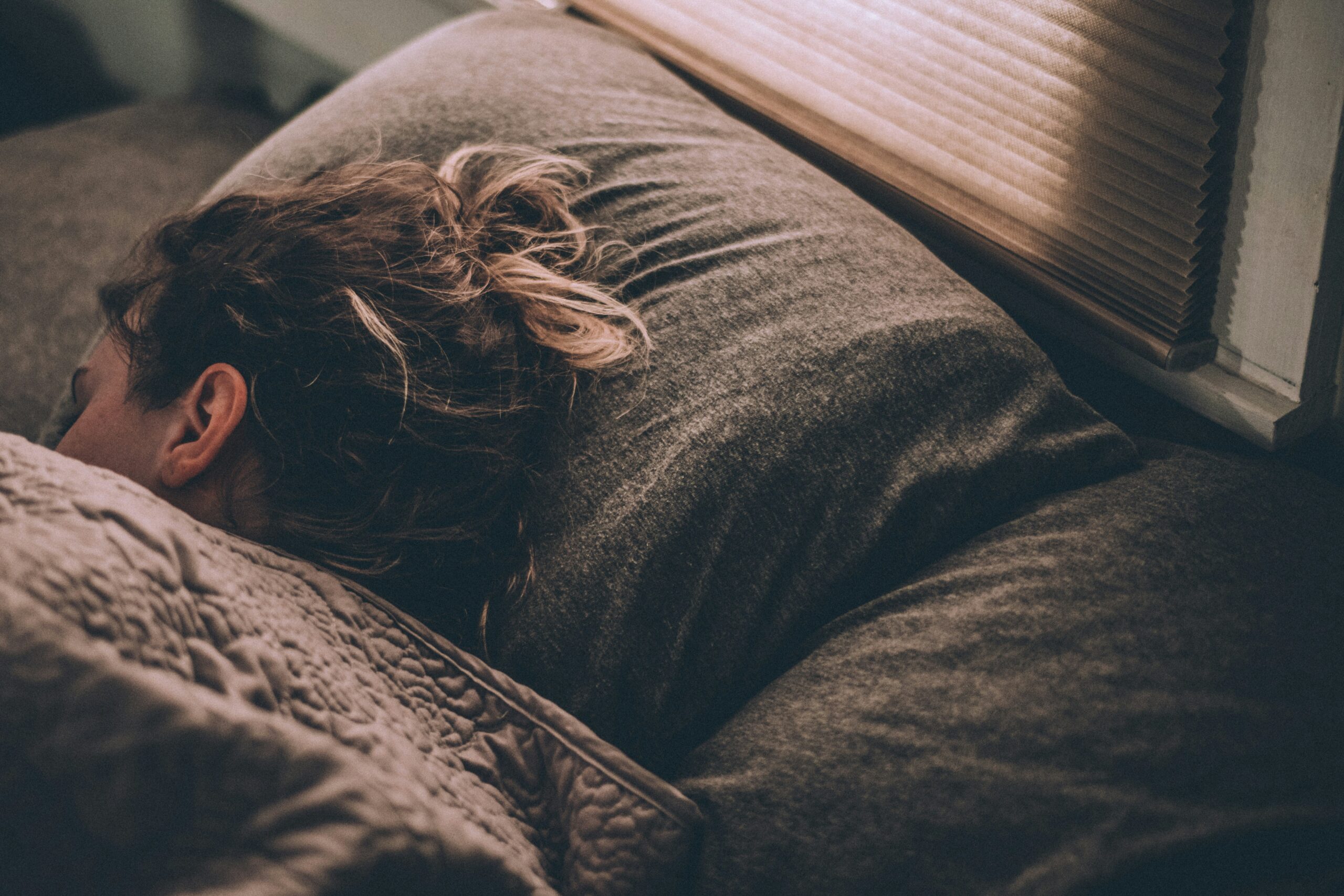We’ve all heard the saying, “You’ll feel better after a good night’s sleep,” but it turns out that sleep is much more important than just recharging our energy levels. Sleep plays a crucial role in mental health, affecting everything from mood and cognition to emotional resilience and overall well-being. When we sleep well, our brains can process emotions, solve problems, and perform optimally the next day. On the flip side, poor sleep can leave us feeling irritable, foggy, and mentally exhausted.
“Sleep is the golden chain that ties health and our bodies together.” – Thomas Dekker
Let’s look at disruptors, the link between sleep and mental well-being and our tips for good sleep hygiene in more detail:
- Common sleep disruptors
- Building a healthy sleep routine
- The link between sleep and mental health disorders
- Sleep is not a luxury, it’s vital for your well-being
Sleep is as vital for mental health as nutrition and exercise. In fact, mental clarity, focus, and emotional regulation all rely heavily on quality sleep. Unfortunately, with the hustle and bustle of modern life, many of us find it difficult to get the sleep our minds and bodies need. In this article, we’ll explore how sleep impacts mental health, common factors that disrupt sleep, and practical ways to improve sleep hygiene to ensure better rest and overall mental well-being.

Common sleep disruptors
Sleep is essential, but it’s often easier said than done when external factors interfere. Here are some common sleep disruptors that can negatively affect both the quality and quantity of your sleep:
Stress is one of the biggest sleep disruptors. When we’re anxious or stressed, our bodies enter a state of “fight or flight,” releasing stress hormones like cortisol and adrenaline. This keeps us alert, preventing us from fully relaxing into sleep. Whether it’s work deadlines, family concerns, or financial worries, stress can cause our minds to race and our bodies to remain in a heightened state, making it difficult to unwind at bedtime.
The modern world is filled with screens, whether it’s our phones, laptops, or TV. While screens can be a great source of entertainment or productivity, they are terrible for sleep hygiene. The blue light emitted by screens can interfere with the production of melatonin, a hormone that regulates sleep-wake cycles. If you’re scrolling through social media or watching TV right before bed, your brain might not get the signal it needs to start winding down.
Going to bed at different times each night and having irregular sleep patterns can confuse your body’s internal clock, also known as the circadian rhythm. A disrupted rhythm can make it harder to fall asleep and wake up at consistent times. This inconsistency can lead to poor sleep quality, leaving you feeling groggy and fatigued during the day.
Building a healthy sleep routine
The good news is that sleep hygiene, which refers to healthy sleep habits, can help you improve your sleep quality and, by extension, your mental health. A few simple changes to your routine can make a world of difference in how well you sleep.
- Create a relaxing sleep environment: Your sleep environment plays a big role in how well you sleep. Make sure your bedroom is dark, quiet, and cool. A dark room helps signal to your brain that it’s time for rest, and a cool temperature is more conducive to sleep. You can also invest in a comfortable mattress and pillows that support a restful night’s sleep. If noise is an issue, consider using earplugs or a white noise machine to block out distractions.
- Establish a bedtime routine: A calming bedtime routine helps signal to your body that it’s time to wind down. About an hour before bed, start disconnecting from screens and engaging in relaxing activities like reading, taking a warm bath, or practicing light stretches or meditation. These activities help lower stress and prepare your body for sleep. Establishing a consistent routine will train your body to recognise when it’s time to rest.
- Practice relaxation techniques: If you’re struggling to wind down after a long day, incorporating relaxation techniques can help. Deep breathing exercises, progressive muscle relaxation, and guided meditation can calm the nervous system and prepare you for sleep. Taking just a few minutes to practice mindfulness or relaxation before bed can help you reduce anxiety and create a sense of calm, making it easier to fall asleep.
The link between sleep and mental health disorders
It’s not just about how well you sleep; the relationship between sleep and mental health disorders is also incredibly important. Poor sleep or sleep disorders can contribute to the onset or worsening of mental health conditions like anxiety, depression, and insomnia. Here’s how:
Insomnia, or the inability to fall or stay asleep, is often both a symptom and a cause of mental health issues. Chronic insomnia can lead to irritability, concentration problems, and increased anxiety. At the same time, mental health conditions like stress or depression can make it harder to sleep, creating a vicious cycle of poor sleep and worsened mental health.

Anxiety and depression are often intertwined with sleep disturbances. Anxiety can make it difficult to relax and sleep deeply, while poor sleep can heighten anxiety, creating a feedback loop. Similarly, depression can lead to hypersomnia (excessive sleep) or insomnia, further contributing to the feelings of fatigue, sadness, and hopelessness associated with depression. In both cases, poor sleep impairs the brain’s ability to process emotions and regulate mood, making it harder to cope with everyday stressors.
Sleep is not a luxury, it’s vital for your well-being
Sleep is not just a luxury—it’s a necessity for maintaining good mental health. By prioritising sleep hygiene, we can improve both our sleep quality and overall well-being. A good night’s sleep doesn’t just help us feel rested; it helps us manage stress, boost cognitive function, and regulate emotions. It also plays a crucial role in preventing and managing mental health conditions like anxiety, depression, and insomnia.
To make sleep a priority in your life, create a relaxing sleep environment, establish a consistent bedtime routine, and practise relaxation techniques. Remember, taking care of your sleep is taking care of your mental health. The next time you feel stressed or anxious, instead of reaching for your phone or trying to power through, consider giving yourself the gift of a good night’s sleep. Your mind and body will thank you for it!
Here are a few tips how to fall asleep faster according to sleep experts:








